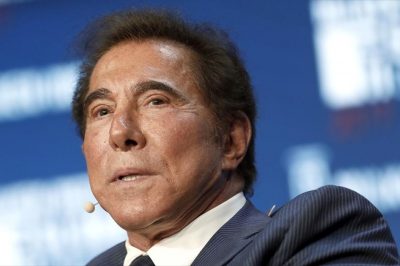 On October 12th, a federal judge officially dismissed a legal action that was filed by the Justice Department against the US casino mogul and Republican Party donor Steve Wynn. This has been the first lawsuit of the Justice Department that sought to compel registration under the Foreign Agents Registration Act (FARA) in more than three decades.
On October 12th, a federal judge officially dismissed a legal action that was filed by the Justice Department against the US casino mogul and Republican Party donor Steve Wynn. This has been the first lawsuit of the Justice Department that sought to compel registration under the Foreign Agents Registration Act (FARA) in more than three decades.
In a 20-page motivated opinion, the US District Judge E. Boasberg sided with Mr. Wynn in the case seeking to force the casino billionaire to register as an agent of China as a response to the toughening efforts of the US government to mitigate foreign influence in American politics. The District Judge did not find that Steve Wynn had acted as an agent of the Chinese Government in advancing its interest through his relationship with former President Donald Trump and members of his administration back in 2017.
According to Judge Boasberg, the Government had no legal authority to force the casino mogul to register retroactively as a Chinese agent under the provisions of the FARA after his alleged relationship with Beijing ended.
The judge agreed that requiring disclosure by Wynn was plainly in line with the main goal of the Foreign Agents Registration Act, which was initially enforced in 1938 to target Nazi propaganda in the US. He also did not reject the fact that the so-called retroactive disclosure of former agents would provide necessary information to make sure the FARA serves the public needs. However, the court had to apply the statute as interpreted by the D.C. Circuit, which basically required the case to be dismissed.
Steve Wynn Rejects Accusations of Acting on Behalf of Foreign Authorities in the US
 As previously reported by CasinoGamesPro, Steve Wynn faced accusations of serving a request from a senior Chinese official that asked former President Trump’s administration to remove Chinese citizen Guo Wengui from the country, after he had sought asylum in the US. Prosecutors asserted that the activities of Mr. Wynn at the time served at the request of Sun Lijun, then-vice minister for public security, as well as the Chinese Government.
As previously reported by CasinoGamesPro, Steve Wynn faced accusations of serving a request from a senior Chinese official that asked former President Trump’s administration to remove Chinese citizen Guo Wengui from the country, after he had sought asylum in the US. Prosecutors asserted that the activities of Mr. Wynn at the time served at the request of Sun Lijun, then-vice minister for public security, as well as the Chinese Government.
According to the Justice Department, Mr. Wynn acted out of a desire to protect significant business interests in China, which involved the casinos he owned and operated in the special administrative region (SAR) of Macau. Previously, the Justice Department addressed the US casino mogul three times asking him to register as a foreign agent without success.
According to a news release of Assistant Attorney-General Matthew G. Olsen that was filed in May 2021, the lawsuit demonstrated the commitment of the US Justice Department to ensuring transparency, especially when it came to alleged foreign influence.
After the District Court judge announced his ruling, legal representatives of Mr. Wynn once said in a written statement that their client had never acted as an agent of the Chinese Government and had never lobbied on its behalf. They further noted that such a claim should have never been filed in the first place, and they were glad that the Court had eventually agreed. Now, representatives of the Department of Justice noted that the Government disagreed with the federal judge’s ruling and was considering options in the litigation. A spokesperson of the Department shared that the agency remained committed to enforcing the Foreign Agents Registration Act.
According to one of the partners at Wiggin and Dana who once oversaw FARA enforcement at the Justice Department, David H. Laufman, if the District Court judge’s decision stood, the agency would be left pretty much with two options when discovering an entity or an individual had been previously engaged in activity that needed to be registered under FARA’s provisions but is no longer engaged in the activity – either do nothing, or bring a criminal prosecution in case it could prove that the entity or person willfully failed to register as a foreign agent. Mr. Laufman believes that the federal court’s decision basically deprived the Department of Justice of an extremely important, intermediate enforcement tool.